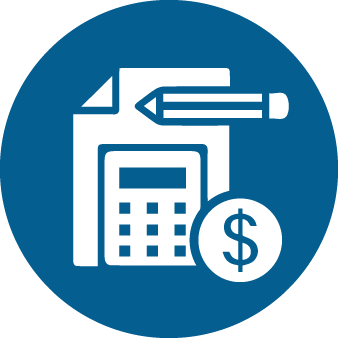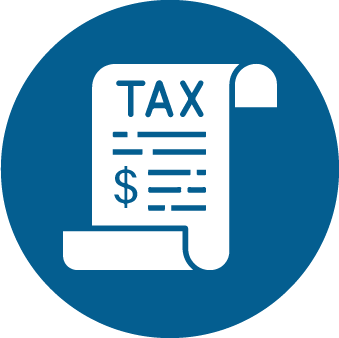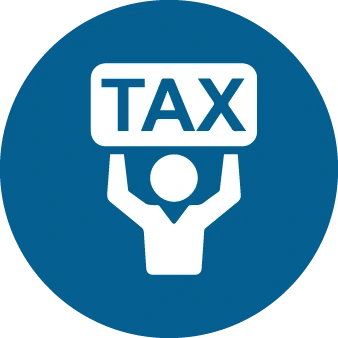Wondering if the state of NJ can take money from your bank account? It's a complex issue tied to NJ banking laws and state tax collection processes.
In New Jersey, the state can seize money from a bank account for unpaid taxes, child support, or court judgments. Child support enforcement may freeze accounts administratively, while other levies typically require a court judgment. Certain funds, such as Social Security, may be legally exempt.
Knowing this can help you understand your financial duties and keep your money safe.
Key Takeaways
- Understanding the legal basis for NJ state fund withdrawal is critical.
- Specific NJ banking laws outline the conditions under which funds can be seized.
- Various reasons can lead to an NJ state bank account seizure.
- Individuals should be aware of their rights regarding their bank accounts.
- Professional advice can aid in navigating possible financial threats.
Understanding NJ Banking Laws
New Jersey's banking laws are key to the financial sector's stability. They ensure fair practices and protect consumer rights. Knowing these laws helps you understand banking in New Jersey better.
Overview of New Jersey Banking Regulations
New Jersey has strict rules for banks and consumers. These laws cover lending, account management, and transparency. They give consumers important rights and help banks operate well.
Agencies watch over these rules to make sure everyone gets a fair deal. This helps meet the state's financial goals.
Key Terminologies in Banking Laws
It's important to know certain terms when dealing with NJ banking laws. Here are a few:
- Levy: A legal way for creditors to take money from a bank account to pay off a debt.
- Garnishment: Similar to a levy, it's a way to take part of wages or funds to pay a creditor.
- Exemptions: These are protections in the laws that keep certain money, like social security, safe from creditors.
Can the state of NJ take money from your bank account?
New Jersey has the power to take money from your bank account under certain conditions. It's important to know the laws and why this might happen. This knowledge helps protect your financial well-being.
Legal Authority of the State
New Jersey law lets state agencies take action against people with unpaid debts. For example, they can seize money from your bank account for unpaid taxes or government loans. This usually happens after a court order is given.
It's key to know about your financial duties. This way, you can avoid unexpected actions by the state.
Common Reasons for Account Seizure
There are several reasons why your account might be seized:
- Unpaid state taxes, where the Division of Taxation enforces collection, often lead to tax liens in NJ.
- Outstanding child support payments, leading to enforcement actions aimed at ensuring compliance.
- Loan defaults on government-backed loans that result in collection measures.
- Court judgments against individuals for unpaid debts, which facilitate an NJ state bank account seizure.
As financial responsibilities grow, it's vital to understand how the state can take money from your bank account. This is important for both individuals and families.
Can New Jersey Seize Bank Accounts for Child Support?
Yes, New Jersey can legally seize or freeze bank accounts for unpaid child support. Child support enforcement is treated differently from ordinary consumer debt. The state prioritizes child support obligations and allows enforcement agencies to access bank funds to collect overdue payments.
Unlike private creditors, NJ Child Support Services operates under administrative authority, meaning bank accounts can be frozen without the same court judgment process required for standard debt collection. This applies to both checking and savings accounts held by the obligated parent.
This enforcement mechanism exists to ensure consistent financial support for children and is one of the most aggressive collection tools available under New Jersey law.
How NJ Child Support Enforcement Freezes Bank Accounts
Child support bank account seizures in New Jersey are typically handled by the NJ Probation Division (Child Support Services). The process generally follows these steps:
- The parent falls behind on court-ordered child support.
- The case qualifies as an IV-D child support enforcement case.
- NJ Child Support Services issues a bank levy or freeze notice.
- The financial institution is legally required to freeze the account.
- Funds may be withdrawn after mandatory holding periods.
In most cases, the account is frozen before the account holder can move or withdraw funds. The freeze may affect the full account balance, subject to exemptions.
NJ Bank Account Levy Explained
It's important to know how an nj bank account levy works. This happens when government agencies or creditors take money from your bank account legally, which often follows missed tax deadlines. In New Jersey, there are strict rules for this process, as outlined in NJ banking laws.
If you're a business owner, having strong financial controls through bookkeeping near you can help reduce risks that lead to levies.
The Process of Levying a Bank Account
The first step is when a creditor or government agency gets a judgment against you. After that, they send a levy notice to the bank. This tells the bank to freeze and possibly take the money.
The bank must follow nj banking laws when they get this notice. They have to freeze the account and tell the account holder about the levy. This shows how serious a bank account garnishment in nj is and limits your access to money.
Implications of a Bank Account Levy
A bank account levy can be very stressful. It means you might not have access to your money right away. It can also hurt your credit score if not handled properly.
People facing this might find it hard to get loans or credit later. It's key to understand the effects of legal actions on your finances. This helps you protect your money and deal with bank account garnishment in NJ.
Facing a levy? It may affect your ability to claim tax relief or access NJ property tax credits.
Grounds for NJ State Bank Account Seizure
In New Jersey, several reasons can lead to the seizure of funds from a bank account. It's important to know these reasons to protect your money. Tax liens and actions by judgment creditors are the main causes of nj state bank account seizure.
Tax Liens and Outstanding Debts
Tax liens happen when people don't pay their taxes on time. If taxes are not paid for a long time, the state can put a lien on your property, including bank accounts. This lien lets the government take money from your accounts to pay off the tax debt.
It's very important to take tax liens seriously. They can cause big financial problems, especially if you're trying to stop paying property taxes in NJ or navigate property tax deductions.
Failing to manage business finances can lead to compounding tax issues—business tax services can help you stay compliant and avoid liens altogether.
Judgment Creditors and Seizure Actions
Judgment creditors are key in seizing bank accounts. If someone owes money and a court makes a judgment against them, creditors can take action. They can ask the court to take money from your bank accounts to pay what you owe.
Knowing how this works can help you prepare if you face a seizure action from creditors.
| Grounds for Seizure | Description |
| Tax Liens | Legal claims placed by the state for unpaid taxes. |
| Judgment Creditors | Creditors who have secured court judgments to recover debts. |
| Consequences | Funds can be seized directly from bank accounts. |
Understanding Bank Account Garnishment in NJ
In New Jersey, bank account garnishment and the nj bank account levy are two legal ways to collect debts. Knowing the difference is key for those facing financial troubles. Both can take money from a bank account, but they follow different legal paths.
How Garnishment Differs from Levy
Garnishment means a creditor gets a court order to take money from a debtor's account. Levy, on the other hand, is when the account itself is seized legally. The way these actions happen can impact your money and rights a lot. Garnishment needs a court win, while levy rules can vary based on the situation.
Steps Creditors Must Take
To start a bank account garnishment in NJ, creditors must take certain steps. These include:
- Getting a court judgment against the debtor.
- Filing a motion for a writ of garnishment with the right court.
- Telling the debtor about the garnishment steps.
- Notifying the bank where the debtor's account is with the writ.
Creditors must carefully follow these steps to meet NJ banking laws. Not doing so could make the garnishment fail, leaving creditors without a way to get their money back.
Is a Court Order Required for Child Support Bank Levies in NJ?
In many child support cases, a separate court order is not required to freeze a bank account.
New Jersey allows administrative child support levies, meaning enforcement agencies can act based on existing child support orders already on file. This is a major difference between child support enforcement and judgment-based creditor levies.
However, the original child support obligation must already be court-established. The enforcement action itself does not require a new lawsuit or judgment, which is why child support levies often happen faster than other types of bank seizures.
What Happens After Your NJ Bank Account Is Frozen?
Once your bank account is frozen due to child support enforcement:
- You may temporarily lose access to funds
- The bank must notify you of the freeze
- A holding period applies before funds are released
- You may claim exemptions if eligible
If no exemption is successfully claimed, funds may be transferred directly to satisfy child support arrears. Acting quickly is critical, delays may limit your ability to recover exempt funds.
New Jersey State Levy Procedures
Understanding the procedures for a new jersey state levy is key for those facing bank account seizure. This part explains the needed notifications and documents by law. It also covers the usual time frames in the levy process. Knowing these details helps people deal with nj banking laws and nj bank account seizure laws.
Notifications and Documentation Required
When a new jersey state levy starts, certain notifications must go to the account holder. These notices usually include:
- Written notice explaining the levy.
- Details about the creditor's claim.
- How to contest the levy.
For enforcing a levy, you need:
- Proof of the debt.
- Legal judgment documents.
- Any financial records that matter.
Timeframes Involved in the Levy Process
The time it takes for a new jersey state levy can change based on several things. Generally, the process goes through these stages:
- Initiation: The creditor files for a levy.
- Notification: The account holder gets a notice, usually in 1-2 weeks.
- Levy Enforcement: Money can be taken within 30 days after notice if no objections are made.
Knowing these time frames and steps can help people get ready for possible effects from nj bank account seizure laws.
NJ Bank Levy Exemptions: What Funds Are Protected?
New Jersey and federal law protect certain types of income from bank levies, even for child support enforcement. Common protected funds include:
- Social Security benefits (SSI and SSDI)
- Veterans’ benefits
- Unemployment compensation
- Certain pension and retirement benefits
- Public assistance payments
These funds are often protected only if they can be clearly identified in the account. Mixing exempt funds with non-exempt income may complicate exemption claims.
Claiming an exemption usually requires submitting documentation within a specific time window after receiving the levy notice.
Joint Bank Accounts and Child Support Levies in NJ
Joint bank accounts are not automatically protected from child support enforcement in New Jersey.
If the obligated parent’s name appears on the account, NJ Child Support Services may freeze the entire account—even if another person contributed most of the funds. The non-obligated account holder may then be required to prove ownership of their portion of the funds.
This is a common issue for spouses, parents, or business partners sharing accounts. Documentation such as payroll records or deposit histories may be necessary to release protected funds.
What Is the NJ Special Civil Part and Why It Matters
The New Jersey Special Civil Part is a division of the Superior Court that handles lower-value civil cases, including debt collection matters.
While child support enforcement typically bypasses this court through administrative processes, other bank levies and garnishments often originate here. Understanding this court is important when dealing with:
- Judgment creditors
- Collection lawsuits
- Motions for bank garnishment
If a levy originates from the Special Civil Part, the debtor generally has more formal notice and legal response options than in child support cases.
What Is a Debtor’s Examination in New Jersey?
A debtor’s examination is a court-ordered proceeding where a debtor must disclose financial information under oath. Creditors use this process to identify assets, including bank accounts, wages, and property.
In New Jersey, debtor’s examinations are commonly used before or after a bank levy to locate funds. Failure to appear can result in penalties or further enforcement actions.
While child support cases do not always require a debtor’s exam, judgment creditors frequently rely on this tool to pursue bank account garnishment.
Protecting Your NJ Bank Account from Seizure
People in New Jersey can use legal protections to keep their bank accounts safe. Knowing these protections is key to keeping your finances stable. NJ's financial rules have special exemptions to protect certain money, keeping important income safe.
For individuals facing seizure risks, our individual tax services in NJ offer expert guidance.
Business owners can benefit from part-time CFO services that help manage cash flow, forecast liabilities, and stay ahead of potential state action.
Legal Protections Available
NJ banking laws offer several exemptions to protect bank accounts. Money from Social Security, veterans’ benefits, and unemployment is usually safe. This main protection stops creditors from taking these important income sources, helping people stay financially secure even when facing legal issues. It's important to know these exemptions to keep your money safe.
Consulting a Financial Professional
Talking to financial experts can really help you understand NJ's financial rules. They can give advice on managing your money and dealing with banking laws. This helps you know what legal protections you have and how to protect your bank account from seizure.
If you're in Clifton, working with a CPA near you can help navigate exemptions and resolve issues efficiently.
Worried about future planning? Speaking with a retirement planner in NJ can help protect your personal finances from state interference.
Effects of NJ State Financial Regulations
New Jersey's financial scene is shaped by state banking laws and rules. These rules affect how people and businesses handle their money. Knowing how these regulations work is key to dealing with financial issues, like bank account seizures.
Changes in financial regulations can also affect how much taxes you owe in Clifton, NJ or what rebate checks you receive.
Businesses struggling with compliance can also benefit from our expert payroll services near you, reducing errors that may lead to audits or levies.
Impact on Individuals and Businesses
People in New Jersey might face money troubles due to bank account seizures. This can make it hard to pay for everyday needs. For companies, a seizure can mess up their money flow, hurting their ability to keep going.
- Not having access to money can make it tough to cover basic costs.
- Businesses might struggle because they can't get the cash they need.
The changes in nj banking laws also affect how people and companies manage their money. Keeping up with these changes helps avoid problems caused by financial rules.
Changes to Regulations Over Time
New Jersey's financial rules have changed a lot over the years. These updates reflect the state's economic and social shifts. They also change how banks handle things like account seizures.
“Legislative changes often reshape the financial security landscape for both individuals and businesses, requiring continuous adjustment to strategies and resources.”
Looking at these changes helps us understand the future of managing money and running businesses under current banking laws.
Conclusion
Understanding New Jersey's banking laws is key for keeping your finances safe. The question of whether the state can take money from your bank account is serious. It affects both individuals and businesses.
The possibility of an nj bank account levy shows why knowing the rules is important. We've looked at how the state can seize funds. This includes tax liens and actions by judgment creditors.
Being informed can help protect your money and your rights. It's important to know how the state can take your funds.
Knowledge is your best defense. If you're worried about your finances or an nj bank account levy, get help. A professional can guide you and protect your assets. They can also explain your rights under New Jersey law.
Want peace of mind? Our tax relief services in Clifton, NJ are designed to help you take control of your financial future.
FAQ
Can the state of NJ take money from your bank account?
Yes, the state of New Jersey can take money from your bank account. This happens under certain legal conditions. It's usually for unpaid taxes or court judgments.
What are the common reasons for NJ state bank account seizure?
Reasons include unpaid taxes, debts, government loans, and court judgments. These are from creditors who got a court order.
What is the process for an NJ bank account levy?
First, a levy notice is sent to the bank. It includes documents showing why the money is being taken.
How does bank account garnishment differ from a levy in NJ?
Garnishment takes a part of your wages or funds. A levy directly takes money from your bank account. Each has its own legal steps and situations.
What legal protections are available for New Jersey residents against bank account seizure?
New Jersey protects some funds from seizure. This includes Social Security, disability, and retirement payments. Knowing these protections is key to keeping your money safe.
What are the timeframes involved in the NJ levy process?
The time can vary. It includes a notice period and a waiting time before the money is taken. Receiving a notice is important for possible appeals or actions to stop the seizure.
Can a creditor legally garnish my bank account in NJ?
Yes, creditors can garnish your bank account in New Jersey. They must follow legal steps. This includes getting a court judgment and proper notice.
What should I do if my NJ bank account is levied?
If your account is levied, seek legal and financial advice right away. Look into debt negotiations, exemptions, or appeals.
How have NJ state financial regulations evolved over time?
NJ's financial regulations have changed over time. They aim to meet economic needs, protect consumers, and make tax collection and account seizures smoother. This affects both individuals and businesses.
Related Articles
Services provided for you
Bookkeeping Services in Clifton, NJ
We serve a range of industries and customers, in an organized, friendly, and reliable way.
Business Tax Services
We are in a position to identify tax planning shots that reduce both your current and future tax liabilities.
Individual Tax Services
We gauge our worth by the personal and business successes of our clients and industries.
Payroll Services
For small and large corporations, payroll systems, highly qualified payroll experts support our services. Our primary objective is to provide customized services and highly favorable pricing for you.
Non-Profit Organization Services
Precision Accounting Intl can assist you set up and maintain your non-profit organizations nontaxable standing by handling all the authority reportage for you.
Part-Time CFO Services
If you"re ready enough to be in this role. Our Part-Time CFO Service Package provides you with a knowledgeable financial manager who will work with you to help guide the progress of your business.











